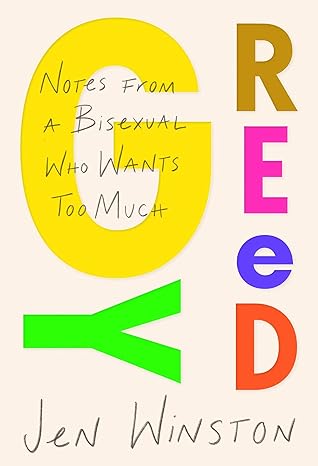More on this book
Community
Kindle Notes & Highlights
when a man on a dating app sends you the word “Hi.” You scoff. “Hi” barely warrants a notification; it hardly even counts as a text. Some people don’t respond to openers like this, refusing to expend energy on someone who hasn’t prioritized them. Those people have self-respect. They put themselves first. You desperately want to be one of those people.
You wish superficial things like height didn’t affect you, but alas—your body registers him as Hot and a pang of longing inflates your chest.
But in your heart, you can’t deny that bisexuality has never felt queer enough. It’s never felt queer enough to talk about. It’s never felt queer enough to take up space. It’s never felt queer enough to lead you to community, or to show you who you are.
“Want me to call you a car?” he asks after he’s done. You’d never planned on staying the night, but regardless, it stings to be hurried out. You decide that you hate him, but also hope he texts you soon—if only so you can leave him on read.
If you’re worried that bi people will cheat on you, your issue is with monogamy—not bisexuality.
The problem isn’t promiscuity—it’s patriarchy, which vilifies sex and dismisses non-monogamy. The problem isn’t confusion—it’s binaries, which encourage us to make finite decisions (usually between two constructs that we never got to choose in the first place). The problem isn’t being greedy—it’s that systems function better when we don’t demand what we deserve. As it turns out, I’m not straight. I’m not gay. The only thing I am is a threat. Because now I understand that bisexuality isn’t just an identity—it’s a lens through which to reimagine our world. This book is about desire—sexual
...more
Characters rarely identified themselves as bisexual out loud—instead they behaved their bisexuality, usually through an illicit queer hookup (followed by a breakdown because they’re so “confused”). This taught me that bisexuality was something you do, rather than something you are.
Reading Gay Bar: Why We Went Out by Jeremy Atherton Lin, I was struck by a quote from San Francisco–based activist Harry Britt: “When gays are spatially scattered, they are not gay, because they are invisible.” In this sense, gay and lesbian bars are responsible for the very existence of gays and lesbians. Queer bars give structure to queer communities, while literally putting those communities on the map.
Biphobia has many forms, and one of the most common involves suggesting that bisexuality doesn’t exist. Since many gay and lesbian people come out first as bi, it’s common for gay and lesbian communities to assume that bisexuality is a gateway identity, or that bi people are “just passing through.” Even if these communities do accept bisexuality as permanent, bi people will still be up against the usual assumptions (e.g., we’re desperate for attention, we’re seeking straight privilege, we’re already planning to cheat on you).
Sometimes I’m jealous of queer communities whose cultural archetypes seem derived from actual behaviors or ideas. To be reductive (as distilling the idea of “culture” requires us to be): Lesbians have U-Hauls, cottage core, and Tori Amos, reflective of emotional openness and matriarchal aspirations. Gay men have Janet Jackson, voguing, and a tendency to walk fast, reflective of a generations-long dialogue with femininity and a tendency to have places to be. These may be massive generalizations, but at least they’re relatively neutral ones. Clichés can be harmful, yes, but they can also help
...more


